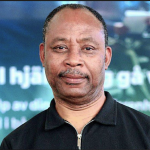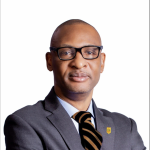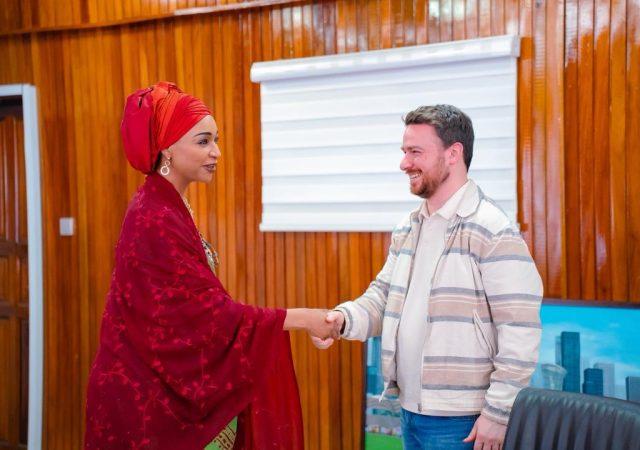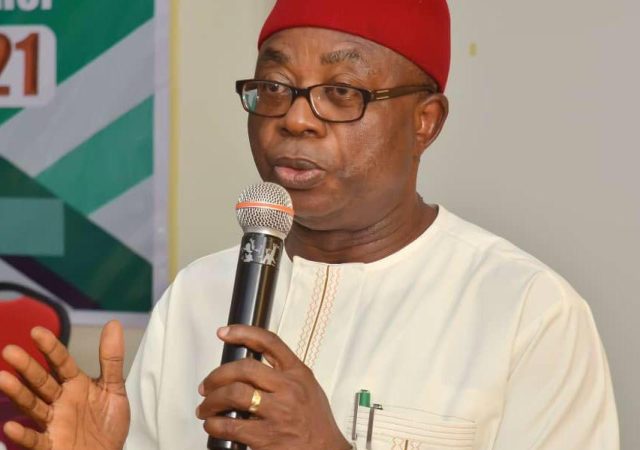
By Emeka Anazia
It has been over 42 years since our first encounter. Young teachers, brimming with the idealistic belief that we could nudge the world toward justice. And for over four decades, I have had the rare privilege of walking beside Collins Nweke – witnessing him become a statesman who has built a most inclusive, principled political and leadership legacies across Europe and Africa.
In an era defined by economic uncertainty, migration tensions, and geopolitical rebalancing, Collins Nweke represents a rare voice of coherence and principled pragmatism. As he turns 60, Nweke’s legacy as a politician, policy thinker, and global advocate for equitable development is coming into sharp focus. This is not only in his adopted home of Belgium but across Africa and the wider diaspora.
Born in Igbuzo in Nigeria’s Delta State in 1965 and politically matured in the port city of Ostend, Belgium, Collins Nweke’s journey is emblematic of the 21st-century African European experience. His career has spanned teaching, banking, and Human Resources management in Nigeria, as well as administrator, municipal politics, international development consulting, and diaspora economic diplomacy. But his core mission has remained consistent: to make globalization fairer for all, especially for Africa and its far-flung diaspora.
Redrawing West Flander´s Political Map – First African-Born Elected Official
Collins made history in 2006 when he was was elected to the Ostend City Council following the 2006 municipal elections under the Green Party (Groen). His election wasn’t merely historic—it was transformative. As the first non-Belgian born elected official in West Flanders, he redefined political participation for minorities in a region historically cautious of multiculturalism. Through three terms, spanning 18 years, he reshaped portfolios ranging from Social Affairs to International Development, creating lasting templates for inclusive governance.
He did not simply occupy the seat; he redefined what it meant for migrants and minorities to be political actors in Europe. From promoting equitable student job access to instituting minority advisory councils, his work forged a template for inclusive municipal governance in a region often cautious of multiculturalism. On his journey from immigrant to elected official, Collins told “The Nigerian Voice”
“I loved many things and saw other things that needed to change… So, for us, Belgium gradually moved from just a passive country to a home in which we had a stake.” – On his journey from immigrant to elected official in The Nigerian Voice
Equitable Global Engagement: More Than a Buzzword
At the heart of Nweke’s worldview is a concept he champions with both urgency and nuance: equitable globalization. For him, the traditional model, anchored in extractive economics and asymmetrical power relations, must give way to a new framework rooted in fairness, reciprocity, and sustainability.
This vision comprises four imperatives:
- Fair Trade, Not Free Exploitation: Value-added exports must replace Africa’s raw material dependency.
- Diaspora as Stakeholders: Beyond remittances, diaspora Africans must shape the policies of their homelands and host nations.
- Rewriting the Aid Narrative: Investment and innovation should eclipse dependency and charity.
- Green and Inclusive Growth: Economic diplomacy must also be climate-conscious and socially just.
It’s a position that aligns him ideologically with leading global reformers yet distinguishes him in his insistence that Africa’s diaspora is the missing link in achieving global development equity.
“Diaspora Africans must shape the policies of their homelands and host nations—not just send remittances.” – On equitable globalization and the politicisation of diaspora influence in the African Courier
The Diaspora as a Political Force
Perhaps Nweke’s most enduring contributions lie in his advocacy for the political and economic enfranchisement of the African diaspora. As a senior leader of Nigerians in Diaspora Organisation (NIDO) Europe, he helped reposition the diaspora not merely as economic contributors, but as agents of national renewal.
Under his leadership, NIDO pushed for—and saw through—the institutionalisation of Nigerians in Diaspora Commission (NiDCOM). Yet, he continues to push the envelope, advocating for diaspora voting rights in Nigeria and promoting diaspora-led trade missions that inject capital, ideas, and legitimacy into Nigeria’s global engagements.
Global Leadership by Distinction
Compared with other heavyweights in Africa’s policy and governance circles, Nweke´s approach is distinctive:
- While Ngozi Okonjo-Iweala champions reform within global institutions like the WTO, Nweke leverages diaspora capital and bilateral trade to shift ground from below.
- Where Arikana Chihombori-Quao wields fiery pan-African rhetoric against neocolonialism, Nweke diplomatically reforms the very systems that need changing.
- Mo Ibrahim, whose focus is on African elite accountability, Nweke prioritises bottom-up change, rooted in people, policy, and practical trade tools.
Collins is in essence, the crucial bridge between grassroots diaspora energy and the corridors of global economic diplomacy. His upcoming book, The Economic Diplomacy of the Diaspora, is set to crystallise this legacy. For Collins Nweke, his journey has not been without headwinds. He has had to contend with and navigate internal diaspora politics. Nigeria’s inertia around electoral reforms, and resistance from institutions uncomfortable with nontraditional voices have all tested his resolve. Yet, he is still undeterred and resolute.
Architect of Equitable Systems in an Inequitable World
In a time when the phrase “citizen of the world” has become cliché, Nweke gives it grounded meaning. His politics is not that of perpetual protest but of patient reform. His diplomacy is not transactional, but transformational. His advocacy doesn’t shout; it builds.
In a July 2025 editorial opinion in Proshare, he shared his hope and belief in the African renaissance:
There is a reminder that Africa, when given the room to lead, can set global standards in unexpected fields. It is a call to action for financial institutions in Europe and Africa alike. Political institutions should also look beyond borders for best practices. Sometimes the future is not found in Silicon Valley or Brussels. It is already at work in Lagos.
The legacy of a mapmaker and the road ahead
Even at 60, he presses forward. As advisor to the Nigeria Belgium Luxembourg Business Forum, and a vocal advocate for reparatory justice in Africa’s 2025 “Year of Reparations,” he remains immersed in building equitable futures.
The evolving narrative around EU-Africa relations bear marks of his legacy, and so does the diaspora’s growing legitimacy in economic and global diplomacy and the emergence of new, inclusive trade paradigms that challenge old power hierarchies
Collins Nweke is more than a statesman. He is a mapmaker of justice, a bridge between nations, and a living answer to the question: What if leadership could be both visionary and practical, idealistic, and effective? For those who long for a better world and seek models of leadership that transcend borders, blend pragmatism with idealism, and fights for inclusion and justice, his life offers not just hope—but a plan.
Author’s Note:
This article is based on public records, policy analysis, and media contributions of Collins Nweke across platforms including TVC News, Channels TV, TRT World, News Central Africa, Africa Matters SABC, RadioNow FM, The Voice, African Courier, The Africa Report, Proshare, among others, along with personal observations and shared history. This is in addition to his interventions through diaspora advocacy organizations, public lectures, speeches, conference presentations, and political leadership.
 The author, Emeka Anazia, is a Fellow of the Institute of Training and Occupational Learning – FITOL (UK). He is also a Global Transformation Integrator and co-creator of the PSG-4 Scaling Framework. He blends Nigerian human ability excellence with European systemic insights to help institutions worldwide embed sustainable innovation. Emeka trained in Nigeria and Sweden and is currently based in Gothenburg, Sweden.
The author, Emeka Anazia, is a Fellow of the Institute of Training and Occupational Learning – FITOL (UK). He is also a Global Transformation Integrator and co-creator of the PSG-4 Scaling Framework. He blends Nigerian human ability excellence with European systemic insights to help institutions worldwide embed sustainable innovation. Emeka trained in Nigeria and Sweden and is currently based in Gothenburg, Sweden.
Birthday message for Mr. Collins NWEKE @ 60.
I would like to join friends, family, and well-wishers in celebrating my friend Collins Nweke on this special day as he clocks the diamond age of 60.
I believe you are one of the incurable optimists who have remained resolute and relentless in advocating for Nigeria’s greatness and productivity, as well as Africa’s emergence as a strategic region for global competitiveness.
As one of our esteemed ambassadors in the diaspora, you have served as a role model for young people of Nigerian descent who aspire to be political leaders in Europe.
Through your incisive columns on credible platforms and the relentless deployment of thought-led engagements and relationship-building interventions across demographics, you have become an advocate for the immense possibilities of a robust, integrated, and transformed Africa, which is competitive.
The consistency and authenticity of your words and actions have challenged those close to you, not just to be the better version of themselves, but to find purpose in nation-building.
I pray that the Lord Almighty, in His infinite mercy, will strengthen you, shower you with his love, favour, and blessings.
I wish you, Collins, more fruitful years in all your endeavours. Once again, Happy Birthday.
 Olufemi Awoyemi, FCA, FCTI, FCIB, FCIoD, FIAPM, FIIM, FIVCS, ACS, mni
Olufemi Awoyemi, FCA, FCTI, FCIB, FCIoD, FIAPM, FIIM, FIVCS, ACS, mni
Founder/Chairman, Proshare LLC









